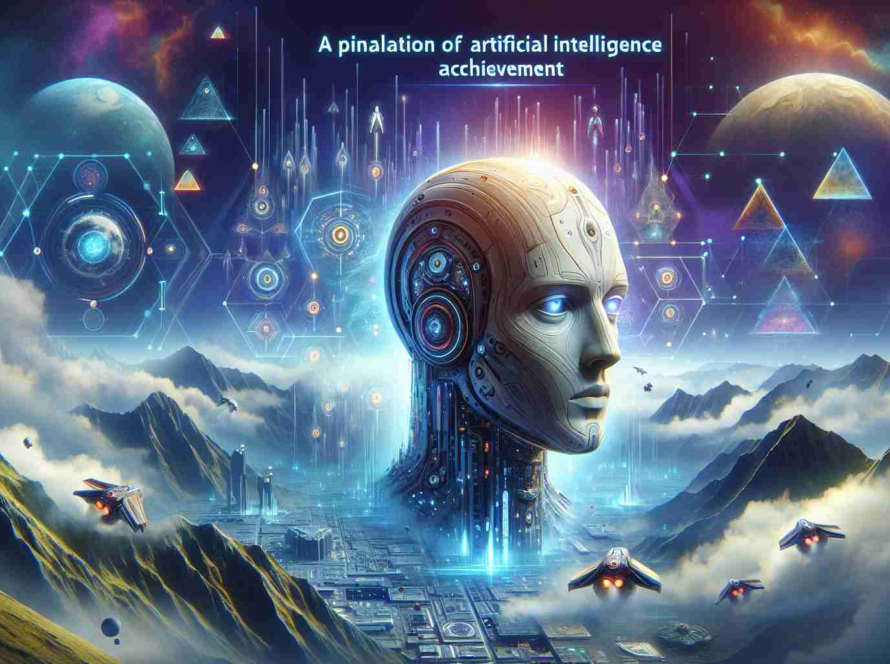Synthetic Intelligence (AI) and robotics are revolutionizing the manufacturing and provide chain industries, driving the transformative period of Business 4.0. This integration of cutting-edge know-how with human ingenuity is unlocking new ranges of effectivity, agility, and competitiveness. AI-driven algorithms analyze huge quantities of knowledge to optimize manufacturing processes, predict upkeep wants, and improve product high quality. Geared up with superior sensors and machine studying capabilities, robots automate duties with precision and adaptableness, leading to elevated effectivity and lowered downtime. Moreover, AI-powered provide chain administration optimizes stock, demand forecasting, and logistics, bettering responsiveness and lowering prices.
The function of AI and robotics in Business 4.0 can’t be overstated. Ram Bhutani, Senior Vice President of Bar Code India, emphasizes their significance, stating that these applied sciences are progressive instruments and catalysts for effectivity, agility, and sustainability. By leveraging AI and robotics, companies can optimize their provide chains, scale back operational prices, and improve their capability to answer market calls for. Prashant Bramhankar, the COO of Expleo India, shares related sentiments, describing the mixing of AI and robotics as a profound transformation that reshapes the manufacturing and provide chain landscapes for a extra agile and aggressive future.
Whereas the adoption of AI and robotics gives immense alternatives, it additionally presents challenges. Aditya Joshi, CEO of OpalForce, acknowledges that the preliminary funding may be daunting, and the workforce must adapt to the transition from conventional abilities to tech-oriented experience. Introducing new applied sciences into present methods may be complicated, and issues about ethics and job displacement could come up. Navigating world tech laws and overcoming organizational inertia add additional difficulties. Nonetheless, embracing AI and robotics guarantees an operational renaissance, with advantages resembling customized manufacturing, enhanced security by automation, predictive analytics, and streamlined provide chains.
Business 4.0 is reworking manufacturing and provide chain administration in a number of key areas. AI-driven algorithms optimize manufacturing processes, leading to lowered waste, elevated output, and enhanced product high quality. Predictive upkeep permits machines to anticipate upkeep wants, lowering downtime and restore prices. Robots automate duties with precision, enhancing productiveness and collaboration with human employees. AI-powered provide chain administration instruments analyze knowledge to optimize stock ranges and enhance demand forecasting. This streamlines logistics, making the availability chain extra aware of market fluctuations and lowering prices.
Regardless of the simple advantages, there are moral concerns and challenges associated to workforce transition. Companies should discover a stability between automation and supporting displaced employees by coaching and upskilling applications. Furthermore, the interconnected nature of AI and robotics introduces new regulatory challenges and safety vulnerabilities that require a proactive strategy to compliance and cybersecurity.
In conclusion, the mixing of Synthetic Intelligence and robotics is the driving pressure behind the transformative period of Business 4.0. This revolution is reshaping manufacturing and provide chain administration, providing elevated effectivity, lowered prices, and enhanced competitiveness. Whereas challenges exist, the alternatives for progress and innovation are huge. Embracing AI and robotics is not only a technological evolution, however a strategic crucial for companies aiming to safe their place within the dynamic panorama of recent manufacturing and provide chain administration.
Sources:
– Prashant Bramhankar, Chief Working Officer of Expleo India
– Ram Bhutani, Senior Vice President of Bar Code India
– Aditya Joshi, CEO of OpalForce
– Manish Godha, Founder and CEO of Advaiya



